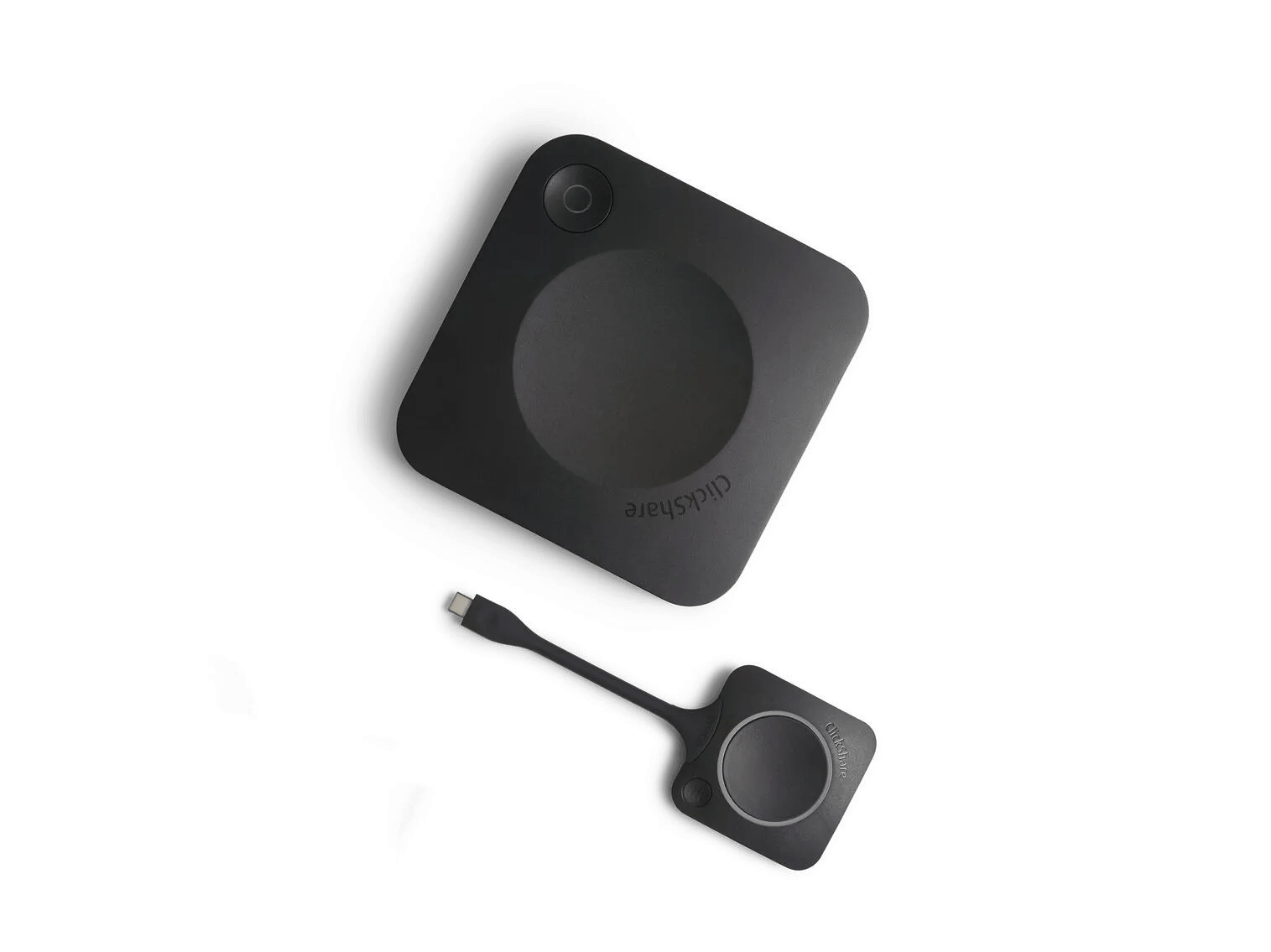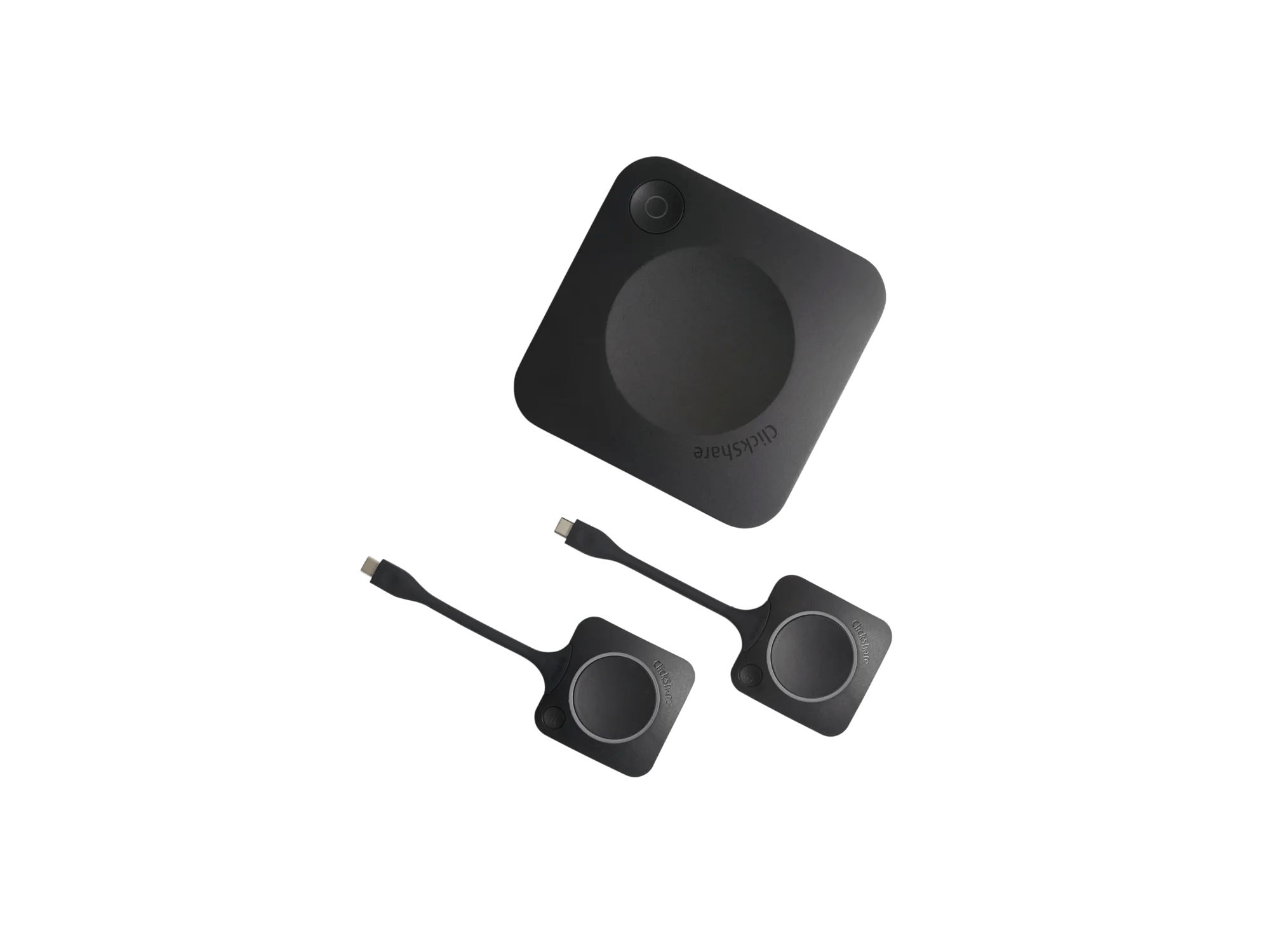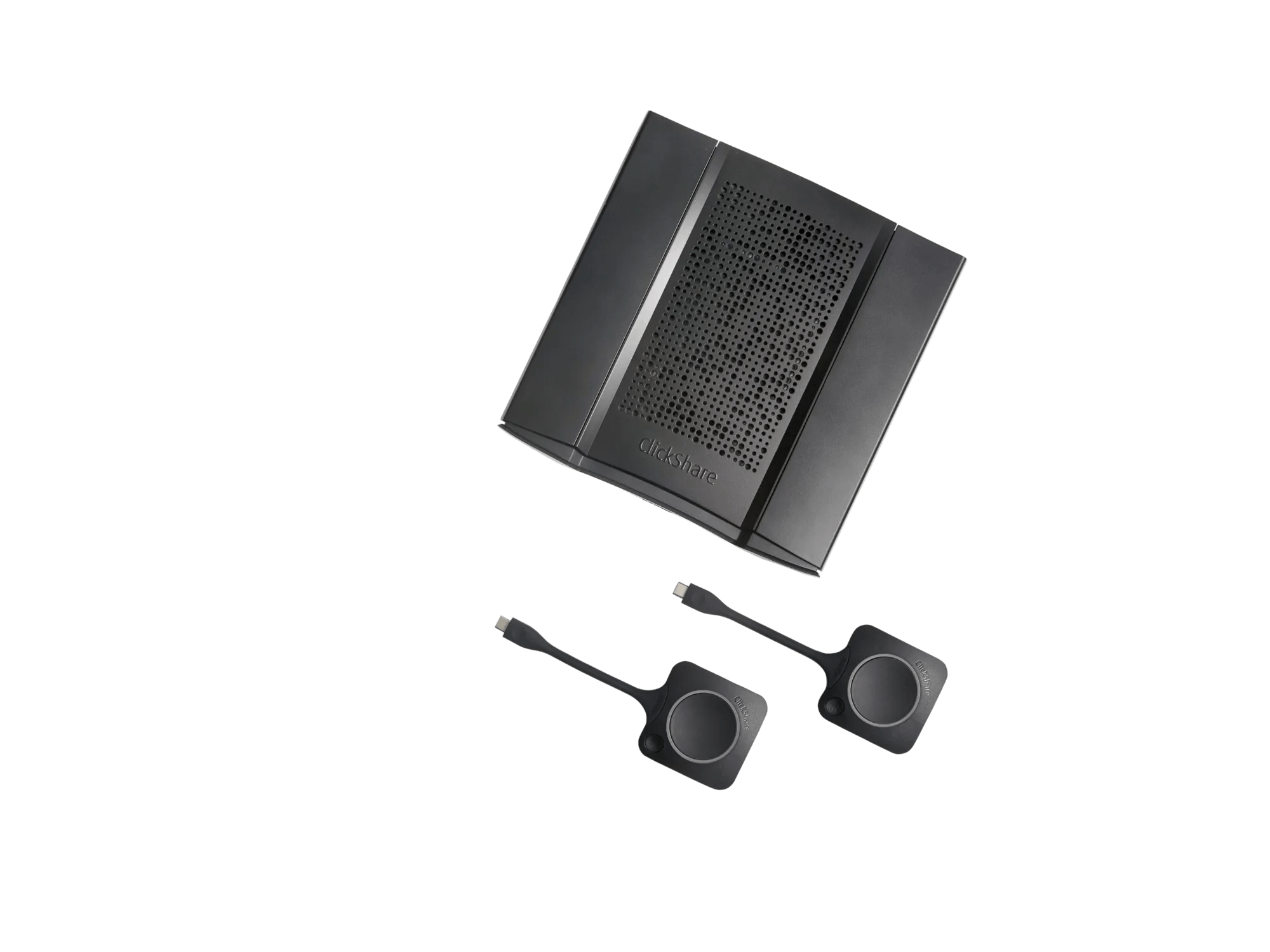4 ways inefficient meetings can cost you money
ClickShare · BYOM · 3 min read
Meetings: some can’t live with them, some can’t live without them. Fact is: meetings are the lifeblood of any business. However, when meetings are run in an inefficient way, they can cost a lot of money to your organization. Before you decide to plan in another two-hour brainstorm, let’s put on our accountant hat and look at the different cost components of a team meeting.
1. The cost of time
Technology allows us to do great things, from having dynamic videoconferencing calls with remote colleagues, to controlling and interacting with our screen content. A growing part of our workforce is taking advantage of the recent advances in conferencing and collaboration technology to work remotely on a regular basis. In-room technologies have made screen-sharing quicker, easier and more effective, and therefore they offer a more engaging meeting experience.
However, when meeting technology becomes too complex, it can also hinder productivity and waste valuable time. Setting up a videoconferencing call is just one example. Barco research revealed that employees often deal with downtime when using meeting technology and that on average 12% of meeting time is spent trying to set up or connect to technology.
2. The cost of meeting hardware
Meeting hardware not only refers to high-end meeting room consoles and displays that are typically found in corporate boardrooms. In fact, boardrooms are not the places where most meetings take place today. Today’s dynamic workforce increasingly relies on short face-to-face meeting, quick standups, or ad hoc calls with remote workers, for which a room hub console would be inefficient.
Finding a suitable meeting technology for a diverse meeting room fleet can be a challenge. On top of that, IT managers will usually want to select a technology that is easy to scale across the organization, and that is easy manage and update. Due to the higher price tag of many high-end room hub and interactive display solutions, technology cannot be scaled easily beyond the corporate boardroom.
3. The cost of meeting space
Office space is expensive, especially when meeting rooms are not used. One of the primary reasons why meeting rooms are not used is because they don’t accommodate for the needs of the workforce. While most conference rooms are designed to accommodate six or more employees, most meetings don’t have that many attendees. Therefore, employees will be hesitant to book such a large space for smaller meetings, resulting in an empty conference room.
On the other end of the spectrum, many companies struggle with a lack of meeting room availability. According to Barco research, the lack of easy-to-access spaces in many organizations is making collaboration more difficult.
An appropriate mix of spaces, with large boardrooms and huddle spaces, seems to be the best solution. Unbookable, informal and small spaces help working groups focus their energies, protecting them from the distractions of noisy open-plan floors while resisting the temptation to separate them in traditional meeting rooms. There will of course be times when the boardroom is the most appropriate venue, but staff should have the flexibility to choose the right space for the kind of meeting they want to hold.
4. The cost of security
Cyber security threats are everywhere. From the laptops we work on to the mobile phones we call with every day; they are all vulnerable to online threats. Needless to say that cyber attacks can have a big impact on a company: loss of critical information, inability to work, and even loss of business.
The technology we use in meetings also poses risks for users, including the possibility of eavesdropping, data theft, privacy loss, and more. While the IT department has a great responsibility to select secure meeting solutions, the lack of flexibility and user-friendliness that often comes with higher security levels may prevent people from using the technology. The winning combination is a technology that is safe and that everybody wants to use.
Efficient video conferencing with ClickShare
Your meeting technology will determine how cost-efficient your meetings will be. With Barco’s ClickShare wireless conferencing solutions, you will not only regain some of your valuable time, you will also be able to reduce other costs:
- Win time: ClickShare users can set up video meetings in 7 seconds, making it easier than ever to connect with remote colleagues.
- Cut down on expensive hardware: With ClickShare, people can make use of their own trusted laptop, which they can use as a standalone videoconferencing solution or couple with any existing meeting room peripheral (display, microphone, sound bar) in any type of meeting room.
- Optimize use of meeting space: ClickShare makes it easier to set up small huddle meetings and connect with colleagues who work from home. On top of that, with Barco’s XMS platform, IT professionals can manage their company-wide ClickShare devices and use the XMS dashboard analytics to see information about the use of their devices and meeting spaces. This information is essential to make data-driven decisions for optimizing the workspace capacity.
- Avoid security issues: Barco obtained ISO 27001 certification for its ClickShare development process, meaning that the company commits to the right processes and structures for the highest international security standards.




